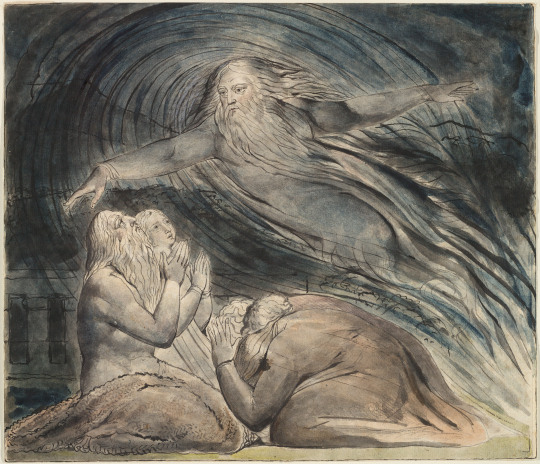#William Blake
Text
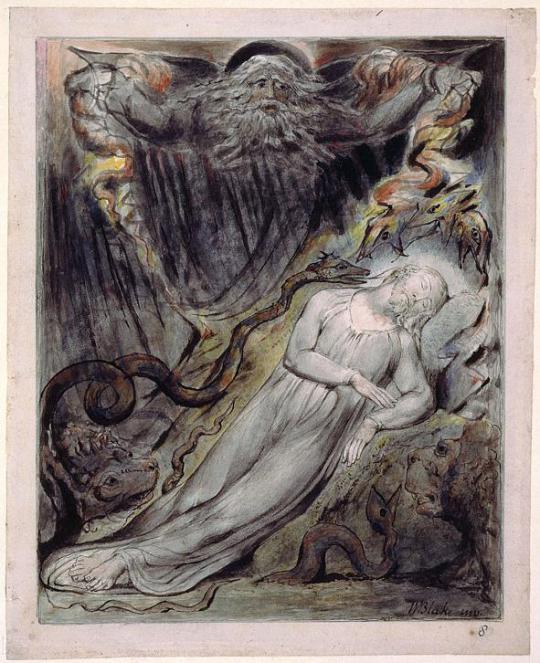
-Illustration to Milton`s Comus-
32 notes
·
View notes
Text
sooooo guess who bought a book about Botticelli :3 it's so funny because I read Dante's Inferno and the Illiad (I had read it in my native language as a kid but couldn't remember so I read it in English) and I also have a crippling obsession with William Blake especially The Marriage of Heaven and Hell which I keep quoting in my fanfic and now I'm obsessed with Botticelli (I literally booked a trip to Florence, I'm going next month) Hannibal has taken over my whole life...
#hannibal#hannibal lecter#mads mikkelsen#hugh dancy#will graham#hannigram#will and hannibal#hannibal tv show#hannibal nbc#hannibal the cannibal#hannibal in florence#hannibal season three#the wrath of the lamb#sandro botticelli#homer#dante#william blake#red dragon
24 notes
·
View notes
Photo
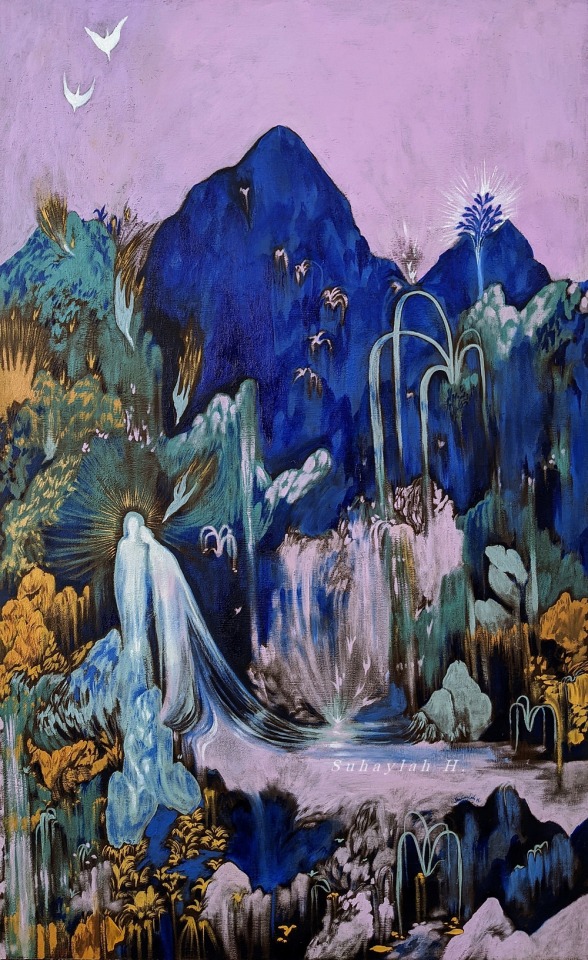
Lovers Sempiternal (2022)
oil on wood panel
Shop: suhaylah.bigcartel.com
Patreon: patreon.com/suhaylah_h
IG: @suhaylah.h
#suhaylah#suhaylah h#art#artists on tumblr#oil painting#symbolism#symbolist art#symbolist painting#landscape#surrealism#mystical art#magical painting#apparitions#william blake#nature art#landscape art
18K notes
·
View notes
Photo
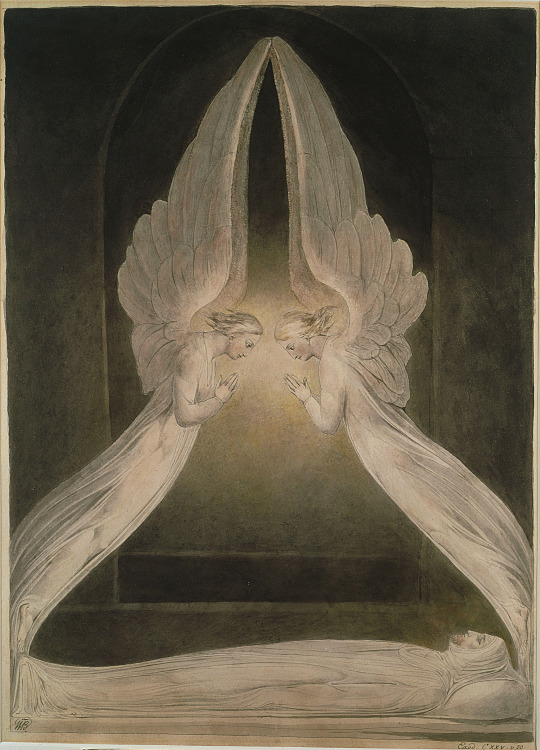
Christ in the Sepulchre, Guarded by Angels
William Blake
2K notes
·
View notes
Text
William Blake - an introduction for Good Omens fans
I have sent @neil-gaiman an ask regarding his feelings toward the poet/artist William Blake a couple of times, but no doubt due to the size of the poor man's inbox I haven't received a response. So I did a Google search to see if he's spoken about Blake before, and it did indeed come up with a fair few hits. I think you might enjoy seeing this Twitter post if you haven't already, the painting is from William Blake's illustrations to Paradise Lost.
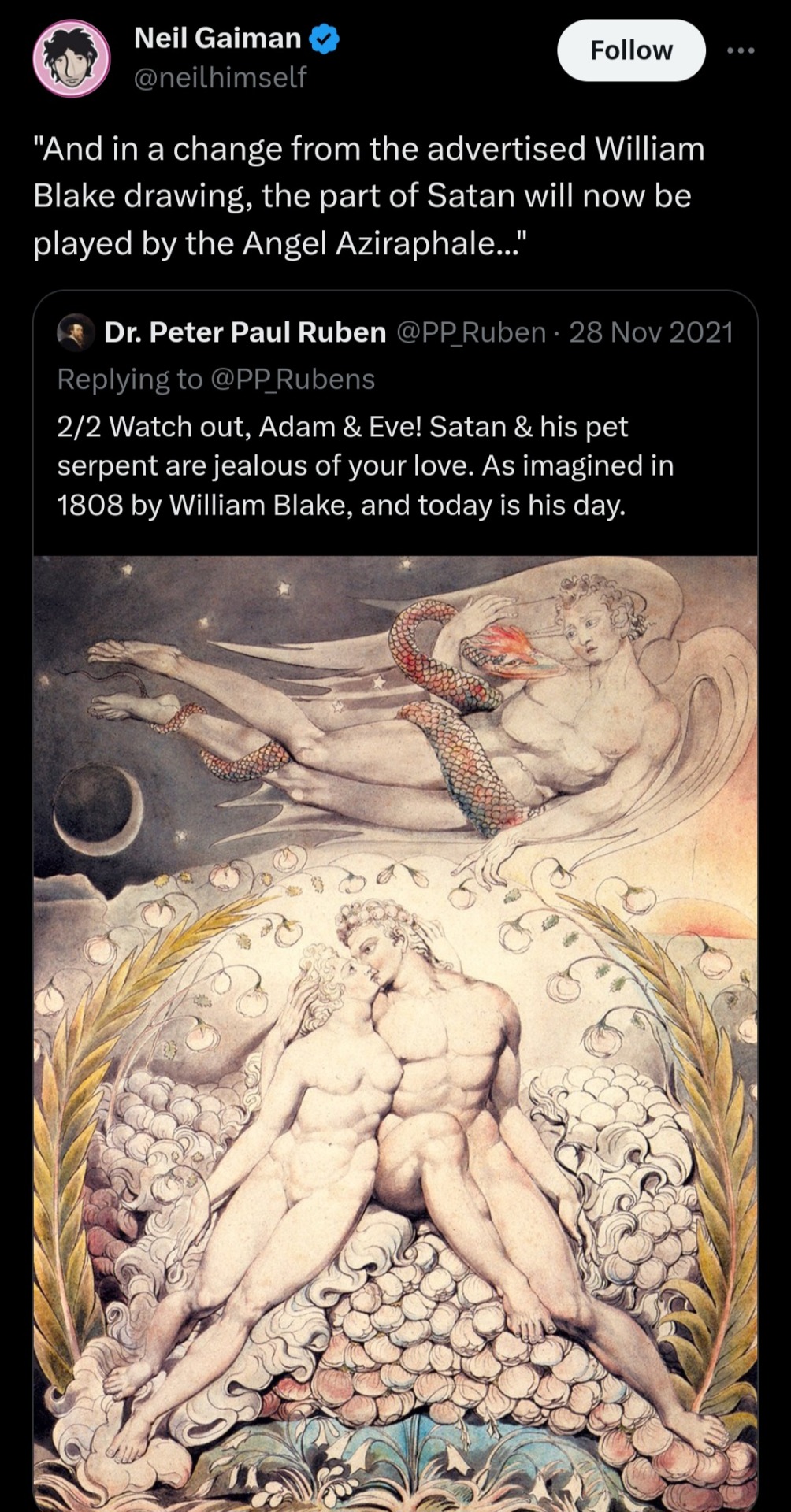
It's not surprising that an author like Neil Gaiman might have an interest in Blake. A visionary from a young age, his imagination was such that he was surrounded by angels made visible in his mind's eye, and he interpreted these visions through poetry, painting and engraving, and self-printed and published many of his own works. This gave him complete freedom to say exactly what he wanted.
Though he had a passionate faith in God, he also had a deep distrust of the church as an institution, and disliked the use of religion as a means of control. This poem from "Songs of Experience" perhaps summarises his feelings best:
"I went to the Garden of Love,
And saw what I never had seen:
A Chapel was built in the midst,
Where I used to play on the green.
And the gates of this Chapel were shut,
And 'Thou shalt not' writ over the door;
So I turn'd to the Garden of Love,
That so many sweet flowers bore.
And I saw it was filled with graves,
And tomb-stones where flowers should be:
And Priests in black gowns, were walking their rounds,
And binding with briars, my joys & desires."
In his poetry there is often an incongruity with the generally accepted religious ideas of what is good and evil, Angel and Demon. In The Marriage of Heaven and Hell (there's a title that should make any GO fan sit up and pay attention) he tells us that "in the book of Job, Milton's Messiah is called Satan", signifying that he feels it is Lucifer/the devil who is the true Messiah of Paradise Lost.
He gives us The Voice of the Devil and Proverbs of Hell, and has Angels being transformed into Demons through enlightenment. He tells us that Jesus broke all of the 10 commandments, yet was still virtuous because he acted according to his own morality rather than rules.
The god-figure of his later works, Urizen, generally comes across as malevolent, seeking to bind and control, whilst Los, the Satan/Messiah figure represents freedom, imagination and creativity.
"Restraining desire" and acting contrary to your own nature seem to be the only real evils for Blake.
He expressed his faith through a love of the world and the beauty in it, summed up in this quote:
"When the Sun rises do you not see a round Disk of fire somewhat like a Guinea? O no no I see an innumerable company of the Heavenly host crying Holy Holy Holy is the Lord God Almighty".
He saw "God" in everything, in all the wonders we have around us, and considered writers/poets and religious prophets as essentially the same, since they both have a connection to the divine, and express it through stories.
It's quite ironic that probably his most famous poem, Jerusalem (the one that starts "and did those feet in ancient times walk upon England's mountains green"), was made into a very popular church hymn, yet it is supposed to be satirical in nature. The poem recounts the myth that Jesus may have visited England in his boyhood, and Blake is expressing his disbelief at that notion and the unworthiness of England.
Did I have a point to all this? Mostly to show my hand as a massive Blake nerd, but also to hopefully demonstrate that there's a lot of common ground between his ideas and those expressed in a show/book like Good Omens, and hopefully to inspire some of you who may not be familiar with Blake to seek him out. In particular I'd recommend The Marriage of Heaven and Hell to any and all.
EDIT: I should have thought to include this, here's Michael Sheen reading a Blake poem. I have the CD this is from, he reads several by Blake, as well as other poets I love ❤️ 😍
youtube
#william blake#good omens#good omens book#good omens 2#good omens s3#neil gaiman#crowley#aziraphale#english literature#literature#poetry#go2#good omens s2#good omens season 2#book omens#michael sheen#Youtube
1K notes
·
View notes
Text
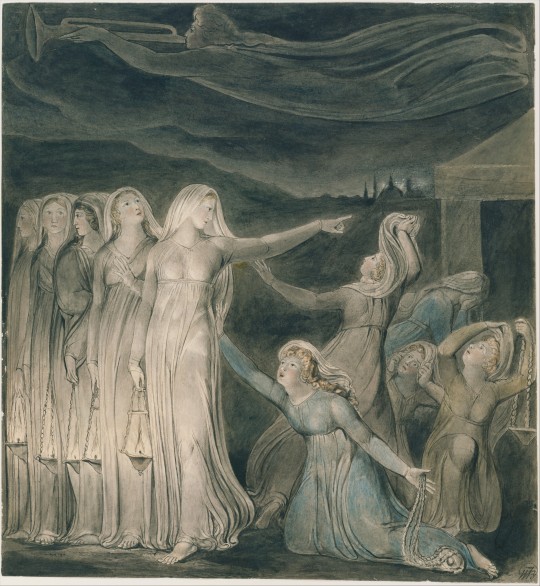
The Parable of the Wise and Foolish Virgins, William Blake, ca. 1799-1800
#art#art history#William Blake#religious art#Biblical art#Christian art#Christianity#parables#parables of jesus#Romanticism#Romantic art#English Romanticism#British art#English art#18th century art#drawing#watercolor#pen and ink#Metropolitan Museum of Art
850 notes
·
View notes
Text
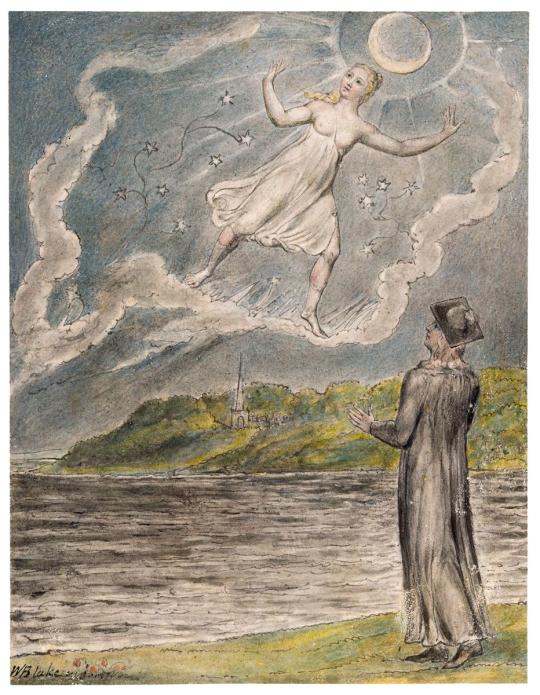
The Wandering Moon by William Blake (1757 - 1827)
747 notes
·
View notes
Text



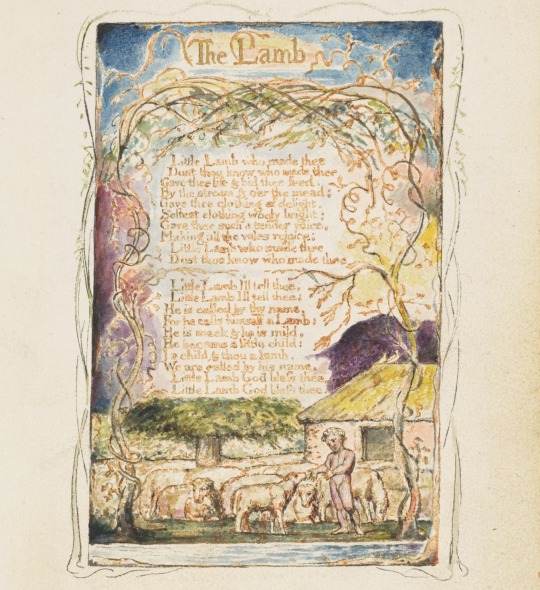
April is National Poetry Month, and at JSTOR, we celebrate the boundless creativity that poetry inspires across various forms of expression. 🎨 📜
This month, we highlight the seamless blend of visual art and verse, featuring stunning prints by William Blake from The Metropolitan Museum of Art's open collection. Blake's work exemplifies the powerful synergy between poetry and imagery, reminding us that words and art are profoundly interconnected.
Images: William Blake. Songs of Innocence: Spring. [1789] printed ca. 1825. The Metropolitan Museum of Art.
William Blake. Songs of Experience: The Tyger. [1794] printed ca. 1825. The Metropolitan Museum of Art.
William Blake. Songs of Experience: The Angel. [1794] printed ca. 1825. The Metropolitan Museum of Art.
William Blake. Songs of Innocence: The Lamb. [1789] printed ca. 1825. The Metropolitan Museum of Art.
238 notes
·
View notes
Quote
It is easier to forgive an enemy than forgive a friend.
William Blake
#William Blake#motivation#quotes#poetry#literature#relationship quotes#writing#original#words#love#relationship#thoughts#lit#prose#spilled ink#inspiring quotes#life quotes#quoteoftheday#love quotes#poem#aesthetic
324 notes
·
View notes
Text
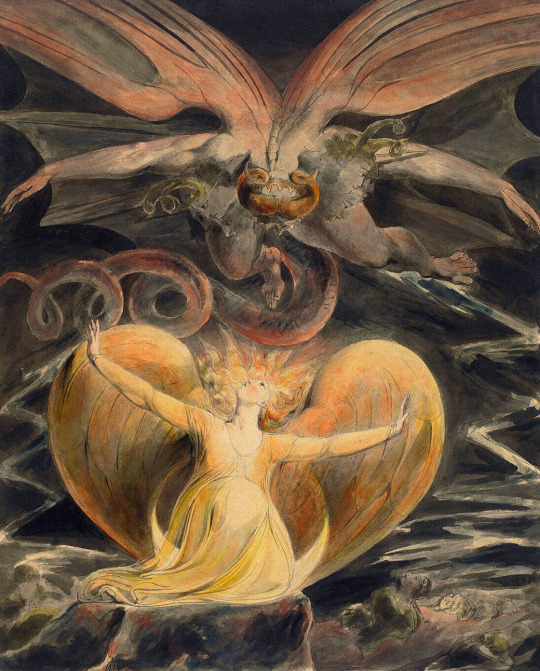
William Blake - The Great Red Dragon and the Woman Clothed with the Sun, c. 1805-1810
#william blake#the great red dragon...#the woman clothed with the sun#occult art#esoteric art#biblical horror#art#painting
535 notes
·
View notes
Text
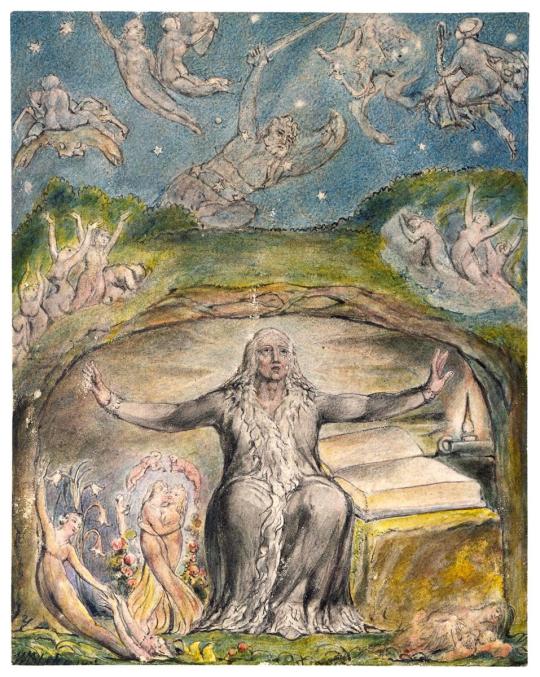
-Illustration to Miltons LAllegro and Il Penseroso-
20 notes
·
View notes
Text
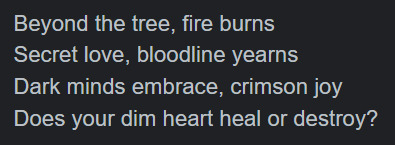

bury the light // "the sick rose" by william blake
#i have a folder of william blake excerpts that are similar to bury the light lyrics#i dont know if anyone has done this before but i honestly might make a vid comparing bury the light lyrics to blake poems!#devil may cry#dmc#dmc5#vergil dmc#devil may cry 5#vergil sparda#bury the light#william blake#poetry
231 notes
·
View notes
Text
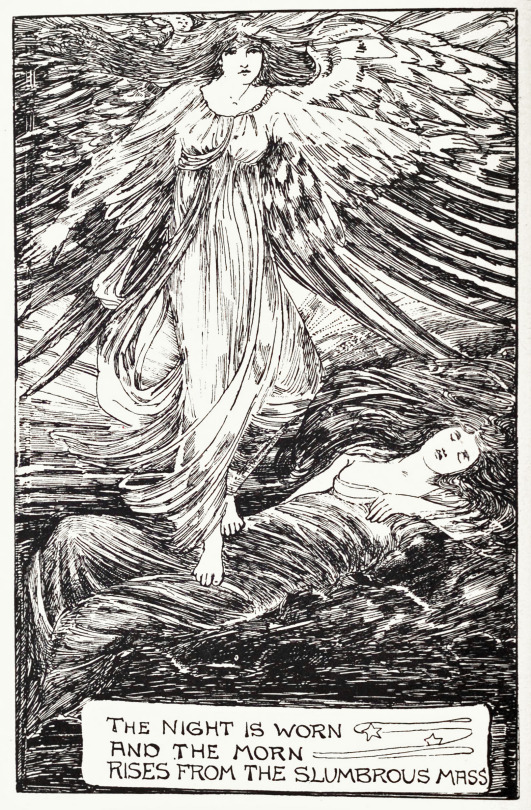
Celia Levetus (1874-1936), ''The Songs of Experience'' by William Blake, 1902
Source
#Celia Levetus#canadian artists#william blake#The Songs of Experience#vintage illustration#vintage art
390 notes
·
View notes
Text
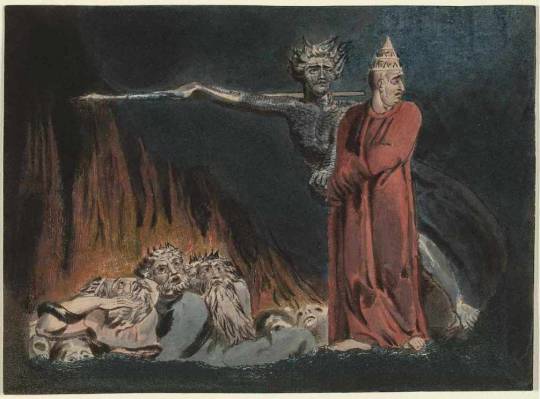
'Lucifer and the Pope in Hell' - William Blake, 1796
291 notes
·
View notes
Text

‘Jerusalem, Plate 100’ by William Blake, c. 1804-1820.
#william blake#vintage art#classic art#art#art history#old art#art details#vintage#moody art#symbolism#painting#watercolor#ink#etching#drawing
841 notes
·
View notes
